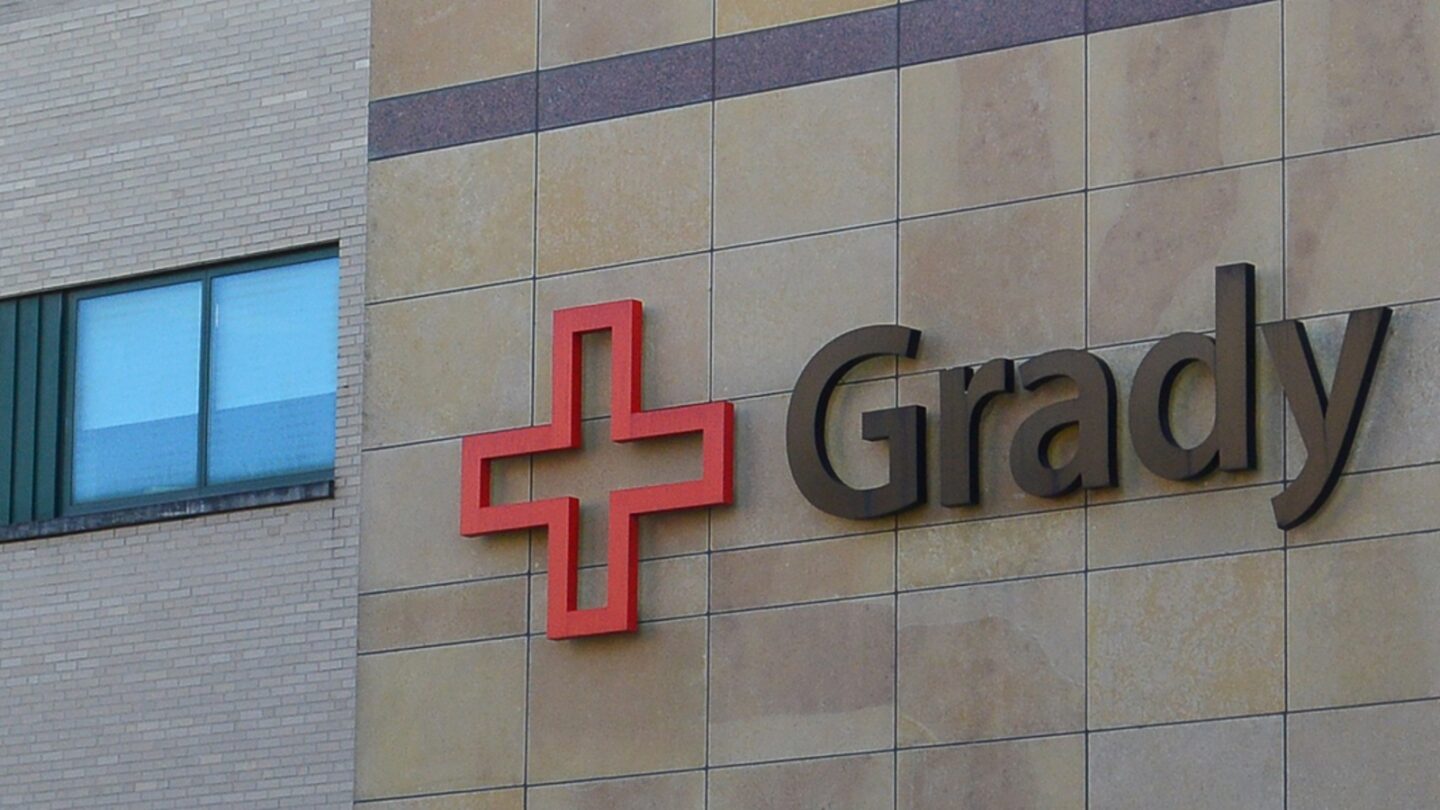Georgia’s largest safety-net hospital with one of the busiest emergency rooms in the country will operate at a reduced capacity for much of the year.
A water pipe break in early December flooded three floors at Grady Memorial Hospital in Atlanta. Hospital officials originally expected repair work to take just a few months. Now they say it won’t be done until October.
“The amount of water that got into those nursing units requires that all the drywall be removed,” said John Haupert, president and CEO of Grady Health System. “So, those units are all going down to the studs and being completely rebuilt.”
Haupert said the revised timeline comes after a month-long review of the damage by the hospital and its insurer, Zurich, as well as the state fire marshal and the city of Atlanta.
Some 220 beds were damaged when the 24-inch pipe burst, flooding the fourth, fifth and sixth floors in Grady’s A and B wings. Haupert said the causes of the break are still being investigated, but the pipe is one of many in the facility that undergoes regular inspection.
“I arrived at the hospital about 30 minutes after this occurred,” Haupert said. “It looked as if … it was raining inside those units: water coming through the ceiling, about an inch of water on the floor,” Haupert said.
“Now, when you walk through there, it looks like a normal construction zone,” he continued. “The floors are gone, the drywall is gone, all it is is the studs. It looks like if you were building out a new patient unit.”
Haupert says Grady is currently handling about 80% of its normal ambulance traffic of some 450 patients a day. Walk-in traffic is currently back to where it was before the water pipe break.
The hospital has also entered into a formal arrangement with Emory Healthcare to take patients. Grady plans to transfer 30 patients to Emory’s Hillandale Hospital in Stonecrest. Starting this week, Emory’s Decatur hospital will also help with obstetrics patients.
“Emory Healthcare views our assistance in this situation as vital to our mission of serving the metro Atlanta community in this time of need,” an Emory spokeswoman said in a statement.
The health care system is one of many in metro Atlanta that accepted patients from Grady in the days after the pipe burst.
For about a week, the hospital was on full diversion and took no incoming emergency patients. Grady later began accepting only trauma, stroke and burn patients, and has now expanded to take behavioral health and severe heart attack patients, as well.
“It all goes downstream,” said Dr. John Sy, president of the Georgia College of Emergency Physicians, an industry group. “So, we’re not just talking about inpatient beds whenever this happens, but everything filters on down.”
Sy said that even losing a few beds could have big impacts at a hospital with as much traffic as Grady, and that could eventually affect other hospitals.
With the help of multiple state agencies and an emergency declaration from Gov. Brian Kemp, Grady brought in a 30-bed mobile ER from North Carolina to expand its capacity.
While other area hospitals have reported increased activity in the past month, officials there have been hesitant to blame that on Grady’s reduced capacity, citing annual patient volume fluctuations and an earlier-than-normal flu season.
In the wake of the pipe break, Grady has also taken a greater role in coordinating local EMS traffic with assistance from the Georgia Department of Public Health and the Georgia Emergency Management Agency.
Essentially, the hospital is running a call center that directs paramedics on calls inside I-285 to ERs with the capacity to take them. The center handled more than 9,400 ambulances between Dec. 14 and Jan. 9, a Grady spokeswoman said.
One local EMS provider, which serves DeKalb and north Fulton counties, says the system has been working well, with little noticeable increase in the time that paramedics wait to transfer patients into emergency room care.
Haupert declined to estimate how much these additional efforts would cost the hospital. However, he expressed optimism that many of the expenditures would be covered by Grady’s insurer, not by local taxpayers who help fund operations there.
“I think I can say with a very high degree of confidence that the taxpayers of Fulton and DeKalb county will not be on the hook for any of this,” he said. “We feel that the insurance will cover the vast majority of the cost.”






